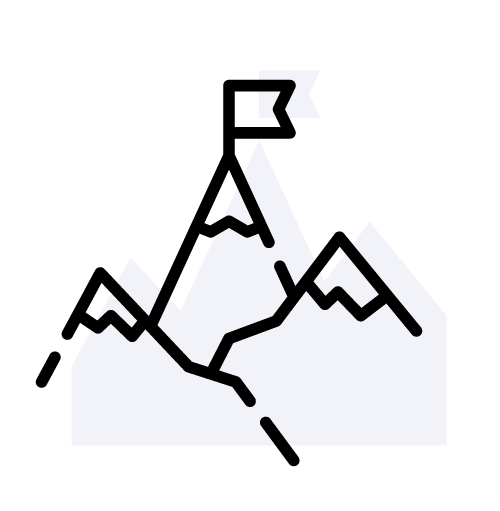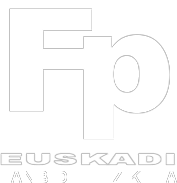Strategic documents
Tknika is a centre promoted by the Deputy Ministry of Vocational Education and Training of the Education Department of the Basque Government.
Mission, Vision and Values

To make research and applied innovation core fundamental elements of Vocational Education and Training in Euskadi, to make progress in new learning settings and processes, and to reduce the skill gap from when an idea or technology comes about until society can take advantage of it.
By means of watch and competitive intelligence, design, development, implementation and transfer of innovative products and services of high added value to Vocational Education and Training centers, and from thence, to the Through a dynamic open to collaboration and establishing alliances, fomenting the creation of networks, teamwork, creativity and sustainability.

To be THE European point of reference in applying advanced practices to transfer knowledge to the business network though vocational training centers.

-
Membership
-
Initiative
-
Agility
-
Impeccability
-
Generosity
We are from VET (TKNIKA), we have initiative, we respond with agility, we do it well and we make it available to those who need it
Reliability, anticipation, collaboration
INNOVATION VISION (R+D+i)
The future that Tknika aspires to in the short- and mid-term is to be THE European leader in the application of advanced practices in capillary transfer of knowledge to the business network, through the vocational educational training schools.
To this end, Tknika plays the role of an organization that researches and innovates in different fields for the Euskadi VET system. It intends to act as a driving element to facilitate and boost innovation developed by VET schools.
Its activity’s expected impact is focused on creating innovative knowledge that provides added value to the development of skills and knowledge (technical and cross-cutting) for teachers at schools in the Euskadi VET system, in order to be transferred through its own to different service recipients (students, companies, active workers, the unemployed, society, etc.)
Innovation Strategy











Equality Plan
Tknika is a centre driven by the Vice-ministry of Vocational Training of the Ministry of Education of the Basque Government which, through its work as a network, and with the implication of Vocational Training teachers in the Autonomous Community of the Basque Country, undertakes applied research and innovation projects in technological, bio-scientific, training, and management fields.
With this plan, which was drawn up under the European Institute for Gender Equality’s guidelines, and its tool to prepare gender equality plans in Academia and Research, Tknika demonstrates its formal commitment to gender equality. It should also be noted that this commitment also exists in informal terms, since Tknika’s people foment equality within their scope of influence, their daily exchanges, and in their relations with external players.












Tknika’s public image and risk of not using inclusive language.
Tknika’s staff’s possible lack of knowledge regarding the use of inclusive language.
Sexist microaggressions are difficult to detect and eliminate.
Gender imbalance in directorial positions.
Gender imbalance in industrial spheres.
Gender imbalance in bioscientific spheres.
Possible gender imbalance in international projects.
Risk of duplicating existing initiatives.
Using inclusive language in all external communications.
Train Tknika staff in the use of inclusive language.
Train Tknika staff to detect and eliminate microaggressions.
Foment gender balance in directorial positions.
Foment gender balance on work teams in industrial spheres.
Foment gender balance on work teams in bioscientific spheres.
Foment gender balance on work teams in international projects.
Analyse and join initiatives relevant to Tknika’s work from a gender perspective.

To use inclusive language in all external communications.
To train Tknika staff in the use of inclusive language.
To train Tknika staff to detect and eliminate microaggressions.
To foment gender balance in directorial positions.
To foment gender balance on work teams in industrial spheres.
To foment gender balance on work teams in bioscientific spheres.
To foment gender balance on work teams in international projects.
To analyse and join initiatives relevant to Tknika’s work from a gender perspective.
Monitoring and rectification if discriminatory language is detected.
Annual training for all staff.
Annual training on microaggressions.
Meeting with the Vice-Ministry to explore possibilities.
Bear gender balance in mind when planning projects and services in industrial spheres.
Bear gender balance in mind when planning projects and services in bioscientific spheres.
Bear gender balance in mind when planning international projects.
Collaborate with relevant initiatives in terms of gender.

- Tknika’s team of directors accepts and signs the plan.
- The plan is included in the centre’s strategic plan, which automatically makes it one of the centre’s strategic objectives.
- Activities that fall under the plan’s objectives are included in department plans, project
plans, and services plans. - The plan is monitored based on the results obtained and the indicators and goals set
forth below:
To use inclusive language in all external communications.
To train Tknika staff in the use of inclusive language.
To train Tknika staff to detect and eliminate microaggressions.
To foment gender parity in directorial positions.
To foment gender parity on work teams in industrial spheres.
To foment gender parity on work teams in bioscientific spheres.
To foment gender parity on work teams in international projects.
To analyse and join initiatives relevant to Tknika’s work from a gender perspective.
Correction of external communications where discriminatory language is detected. Meta: 100%
Number of annual trainings. Meta: 1
Number of annual trainings. Meta: 1
Number of meetings with the Vice-ministry. Meta: 1
% of teams that include women’s participation. Meta: 40%
% of teams that include men’s participation. Meta: 40%
% of teams that include men and women’s participation. Meta: 100%
Number of initiatives with which Tknika collaborates annually. (example 8 March) Meta: 2
Policies
- Innovation policy
- Economic Sustainability
- Continuous Improvement policy
- People policy
- Language policy
- Intellectual Property policy
Basque Country’s Vocational Educational Training Applied Innovation and Research Centre, Tknika, is a technical body responsible for research and applied innovation and transfer of results from R+D+i projects to the schools that provide vocational educational training in the Community of the Basque Country.
The purposes of the Basque Country’s Vocational Educational Training Applied Innovation and Research Centre, TKNIKA, are the following:







In order to comply with its duties, TKNIKA shall have a team of directors consisting of an Executive Director and Department Directors, with people qualified to conduct each project and service, structured into the following areas of action:
To facilitate achievement of its intended mission, TKNIKA has a comprehensive management system that includes processes and its interactions. As reference for its management system, it uses standards ISO 9001 on quality management, as well as UNE166002 on R+D+i Management, and commits to comply with the requirements set forth in these standards.
TKNIKA commits to the ongoing improvement of its R+D+i management system.
As a public organiZation under the Basque Government’s Vice-ministry of Vocational
Training, Tknika has a will to serve society and for sustainability over time.
To this end, Tknika will always seek economic-financial viability by looking for a return (economic and/or social) on investments made in people, training, equipment, and facilities, by sharing and exploiting the results obtained in research and innovation projects and the services provided (aspect set forth in Annex VI).
Consequently, its management shall be based on efficiency and optimizing the people and resources assigned to conduct its Mission.
Tknika shall exploit all opportunities within its reach to create its own resources. Transparency and rigor are ineluctable hallmarks of Tknika’s own identity.
More specifically, TKNIKA has adopted quality and applied innovation as an action philosophy identified in our Mission, Vision, and Values.
These Principles are rolled out through the following processes and projects:
Implementation and development of a quality management system according to Standard UNE-EN ISO 9001
Implementation and development of an innovation management system according to Standard UNE 166002
Implementation and development of an integrated quality and innovation system according to Standards UNE-EN ISO 9001 and UNE 166002
Implementation and development of an Innovation Vision, Strategy, and Policy.
Implementation of a Permanent Improvement policy.
Review of the management system and periodical process updating.
Internal and external management system audits.
Tknika declares its commitment to fulfill the requirements stipulated by the two reference standards.
Tknika also declares its commitment as an organization to permanently improve the management system.
Tknika commits to fulfill legal requirements and applicable regulations, as well as other requirements voluntarily undertaken.
Moreover, this Policy is rolled out through the annual plans by formulating and meeting objectives. These objectives are quantifiable and can be measured with indicators. All of them are quality and innovation objectives whose degree of compliance shall be periodically assessed.
The commitment to quality affects the entire organization. Everyone at Tknika accepts this commitment and their responsibility in meeting the established requirements and agrees to actively participate in improving quality.
Tknika guarantees that everyone at the organization meets the skill profiles required and that they are competent to carry out their roles. Tknika plans and carries out actions to update and improve skill levels for all its people.
Client orientation is a basic principle assumed by all people at Tknika and in all of the organization’s activity. This all takes shape in the planning, development and offering of innovative projects and services with high added value for interested parties.
Tknika’s Management provides the resources and means necessary to reach the objectives and results established.
The hiring process begins by defining the skill profiles needed for each role/position/project/service . The intent is to find the most appropriate and competent people for the position. After this, the most competent candidate is hired. This selection and hiring process takes place under the utmost guarantee of equal opportunity and the objective scoring of merits shown. Service commissions tend to be subject to the project/service life cycle and may be renewed according to the organization’s needs.
This renewal is subject to meeting individual objectives (specified in specific roles and tasks) allotted to each individual at the beginning of each course, aligning said individual objectives with the organization’s objectives and strategies. The evaluation is the result of the assessment of the development plan.
TKNIKA establishes its internal training plans, whose objective is the skill and professional development of the people at the organization. It seeks to develop the skills that Tknika needs both today and in the future, based on criteria of anticipation, flexibility, and polyvalence.
TKNIKA’s management acknowledges the effort the people at Tknika make and the results they obtain, both as a team and individually. In any event, it declares its support for its people in carrying out their activities, maintaining a personal relationship based on total trust of the individual.
Insofar as is possible, Tknika will attempt to adapt to the requirements and language demands of its interest groups.
To this end, both internal and external communication (meetings, messages, presentations, calls, magazines, website, etc.) will be in Basque and Spanish.
Unless for reasons beyond its control, Tknika shall use inclusive language in all its communications.
According to available resources, this focus will also be applied to materials generated in the projects performed and the services provided by Tknika.
When necessary, English shall be the third language used. In other cases (French, German, etc.), the language shall be used based on the needs of the recipient of the message.
Tknika shall facilitate improved language skills to people in said languages through its internal training plan.
Tknika systematically updates the inventory on these tangible and intangible assets.
For each case, TKNIKA identifies the assets to be transferred, licensed, exchanged, or delivered for use and how this will be done.
As a general rule of action, results are transferred and used openly, making them available to all interested parties, especially Euskadi VT centers and their teachers. The intangible assets, knowledge and materials generated by/at TKNIKA are open and free.
In specific situations at TKNIKA’s discretion, the authorship and property of intangible goods will be protected, and appropriate legal means shall be used to do so.
If necessary, tangible and intangible good transfer agreements will be registered in a document/contract without any ambiguity. Aspects such as the following should be included: identification of the parties, justification/explanatory memorandum, purpose of contract, definitions of the terms used (especially when they can lead to misunderstanding), remunerations, payment conditions, trademark use, duration of agreement, intellectual property protection (rights, proof of registration, authorisation of use), confidentiality/secrecy, signatures, date and place.
At all times, both Tknika and the people of which it is composed (especially those working on especially sensitive projects) shall guarantee the impartiality, lack of external influence in work, objectivity of criteria and professional action, and confidentiality of the information and knowledge created by them.


